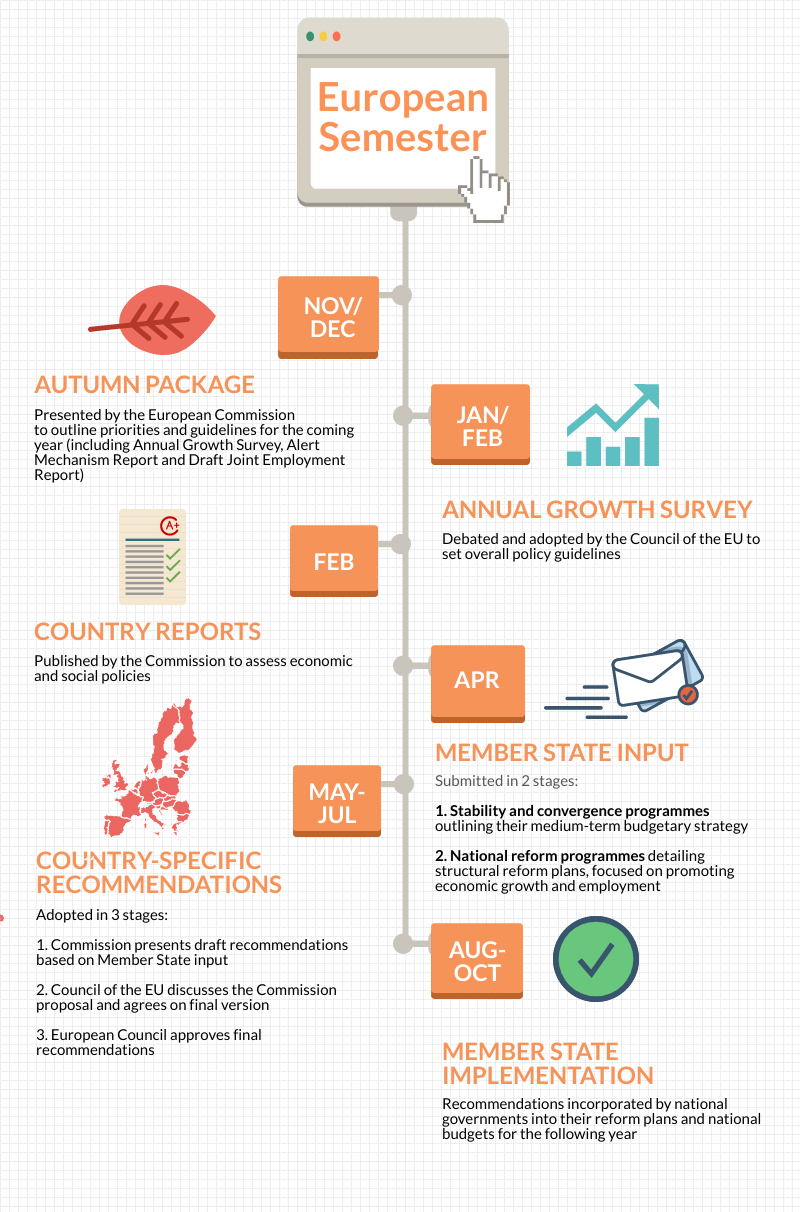Good Governance
Good governance of the EU’s social and economic policies has proven to be a powerful instrument to push forward reforms and policy measures at national level. In recent years the EU has better balanced its social and economic objectives, but more must be done to make sure that the wellbeing of people is put before profit.
What is the EU doing?
The EU’s main social governance tool is the European Semester, which monitors and coordinates Member States’ economic and social policies and reforms. It takes the following steps:

The cycle starts again towards the end of the year, when the Commission gives an overview of the economic and social situation in its annual growth survey for the coming year.
Read more about the European Semester here.
What does Social Platform want?
Social Platform advocates for a European Semester process that looks at social and economic policy issues and gives them equal weight. The Semester process was originally created in its current form in 2010, as a reaction to the economic crisis. It allows EU Member States to coordinate their economic policies throughout the year and address economic challenges the EU faces. Following years of pressure by civil society, politicians, social partners and other stakeholders, the most recent European Semester cycles have moved in an increasingly social direction, but an imbalance towards addressing economic policy issues persists. Read more in our position paper, ‘Building Social Europe: A comprehensive implementation approach for an effective European Pillar of Social Rights‘.
Social Platform has been working together with interested member organisations on collecting input to the European Semester process to make sure that priorities and country-specific recommendations correspond to the reform needs on the ground. We have shared this input with key stakeholders in the EU institutions, such as during informal exchanges with the Social Protection Committee, an advisory policy committee to the Ministers in the Employment and Social Affairs Council (EPSCO).
Further information
- Report, ‘Socialising the European Semester: analysis of the 2019 European Semester process and recommendations for the 2020 cycle’ (2019)
- Position paper, ‘Building Social Europe: A comprehensive implementation plan for an effective European Pillar of Social Rights’ (2018)
- Position paper, ‘EU Social Standards: Ensuring every person’s fundamental right to live a life in dignity and fully participate in society’ (2016)
- Position paper, ‘Reinforcing social governance of the European Union for social progress and upward convergence’ (2015)













































